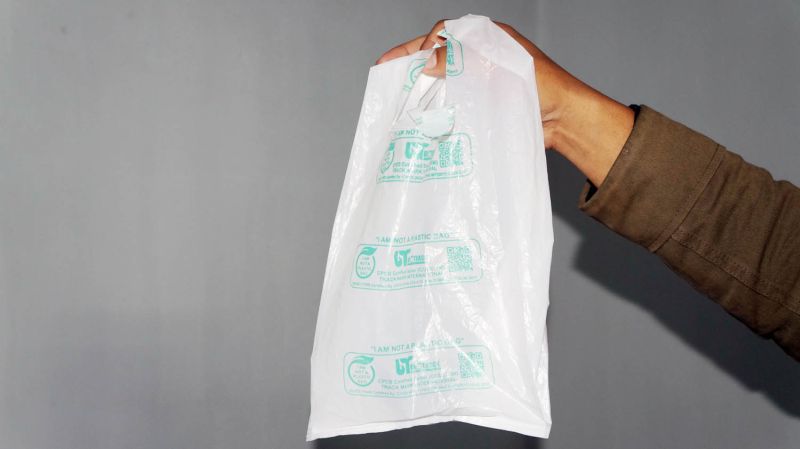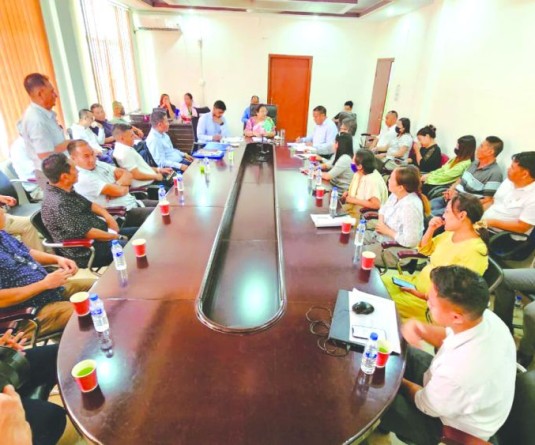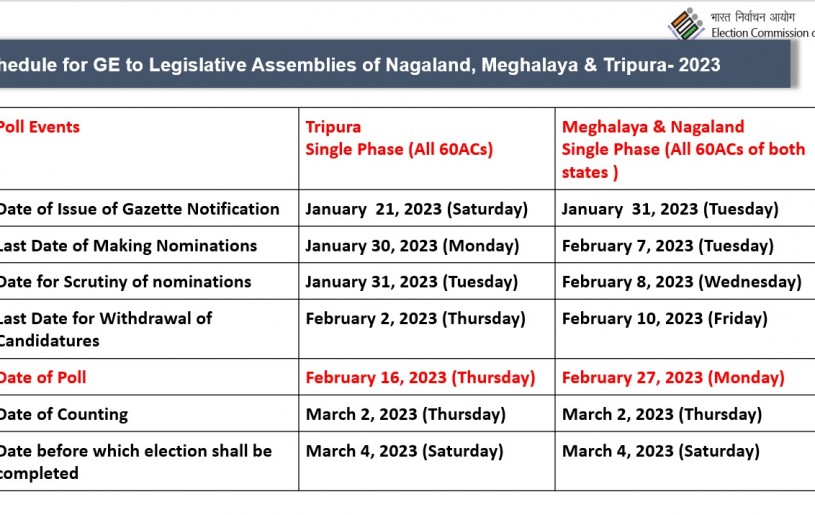Plastic ban: Another NLTP in the making?

• 4 months on, banned plastic bags found aplenty
• Consumers unaware of other alternative
• Eco-friendly bags struggling to get a foothold
Kanili Kiho
Dimapur | February 4
Plastic waste management has for years been a global concern with countries the world over grappling with the problem. Banning sounds easy enough but finding economically viable alternatives have turned out to be problematic, especially in a developing economy like India.
While in Nagaland, the state government made a bold move prohibiting single-use plastic beginning September 18, 2019. The items that made the banned list included all single-use plastic products such as plastic carry bags (with or without handles, irrespective of thickness and size), plastic cutlery, including plates, plastic cups, straw, stirrer etc, cutlery and other decoratives made of styrofoam (thermocol), polythene, nylon, poly-vinyl-carbohydrates, poly-propylene and poly-styrene.
Enforcement units known as District Task Force (DTF) were subsequently set up in the districts.
A ban only on paper
Four months on, there are signs the ban would end up like the Nagaland Liquor Total Prohibition Act (NLTP). Plastic plates and cups, plastic water bottles in the 300-500ml range are still available in the market; find its way to ceremonial dinners and ultimately to an already overwhelmed landfill in Dimapur.
Polythene is still the preferred carry bag, while paper bags are rare. Poly-propylene bags (also known as PP bags), which is on the banned list, are openly sold and another type of polythene bags stamped 51+ microns are also found.
Proscription on one hand and open use on the other has put a question mark on the effectiveness of the former. State government officials however maintain that regular checks are undertaken.
As reported in the news, in Dimapur, the DTF, along with Dimapur Chamber of Commerce & Industry has been conducting checks at regular intervals since the ban took effect. A member of the DTF informed that the most recent was conducted in January during which penalties were imposed on defaulters. According to the official, further checking will be conducted in the coming days.
Deputy Commissioner, Dimapur, Anoop Khinchi, who is also the DTF head, maintained that the job of the team also includes promoting alternatives like paper bags.
According to the DC, the DTF is collaborating with NGOs to produce and promote paper bags and is in touch with the business community. While stating that sensitisation campaigns have been taken to schools and colleges, he said that there will be an impact only when every individual limits plastic use.
The battle against plastic can be sustained only when the consumers are aware of its hazards, he added.
“Let’s try an alternative to plastic bags. People should also cultivate the habit of carrying their own bags.”
No takers for alternative
Meanwhile, private ventures with potential to replace the conventional single-use plastic bags are already in the works but unheard and struggling.
Two Dimapur-based entrepreneurs— K Lilian Sema and Kabinlo Kent were optimistic of promoting eco-friendly alternatives in Nagaland in the backdrop of the state government’s seemingly firm move to ban single-use plastic.
They began importing compostable carry bags certified by the Central Pollution Control Board (CPCB) when the ban took effect. However, the organic-based bags have still to make its presence felt largely for a lack of governmental support, disinterest from businesses and little or no awareness among the public on the availability of eco-friendly alternatives in the market.
Lilian, who is the proprietor of KL Enterprise, said that her imported carry bags are struggling to get a foothold in a market that still prefers the traditional plastic bags despite an existing government ban. Kabinlo, who runs KR Enterprise, is also facing the same challenge.
Price seems to be coming in the way of an eco-friendly alternative. According to her, non-biodegradable bags sell cheap, for as low as Rs 120 a kg, while the CPCB certified organic bags costs a little over Rs 400 a kg.
According to Lilian, the imported carry bags are made from natural plant materials and can easily biodegrade once disposed when it comes into contact with soil and moisture through microbial activity.
“The material is thin but strong and durable. It takes about 180 days to degrade once buried under the soil,” she said.
She added that setting up manufacturing plants here would reduce price considerably.





